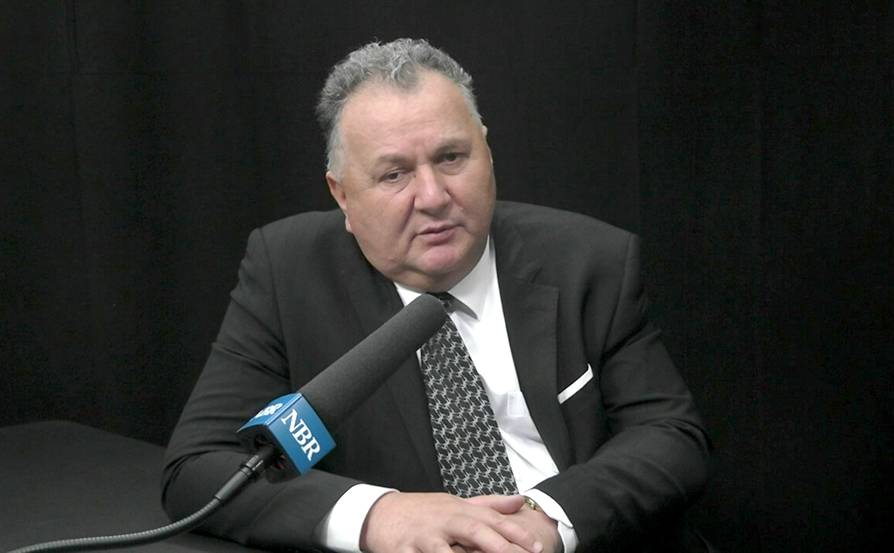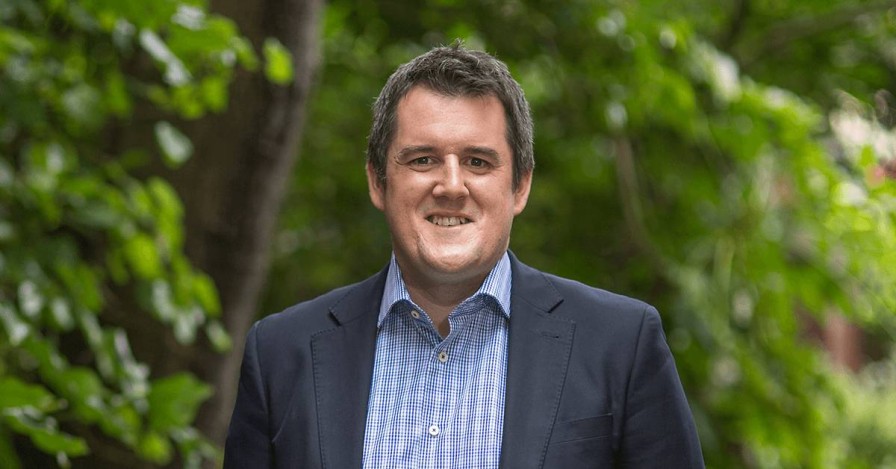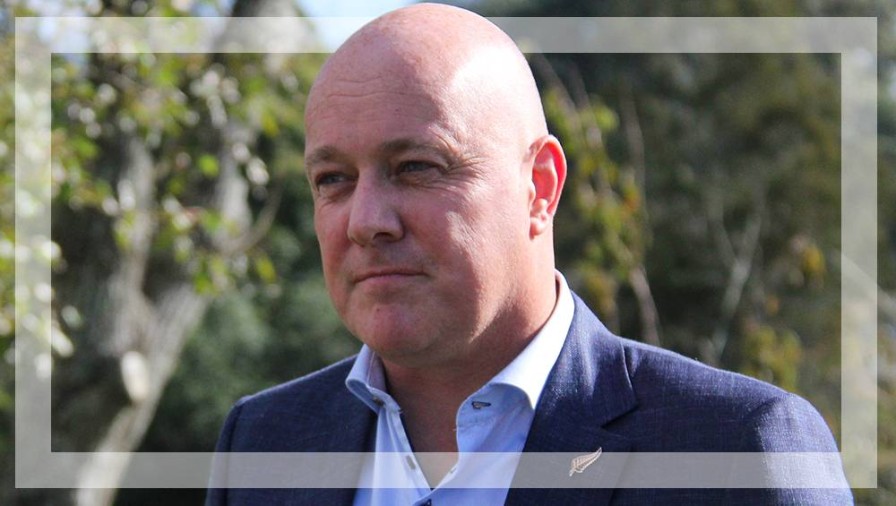100-day fast-track; promises, promises; a grounding; outrage
Increasing licence fees is not a broken promise if you never talked about it.
Beehive Banter: the week in politics.
Increasing licence fees is not a broken promise if you never talked about it.
Beehive Banter: the week in politics.
The coalition Government continued to use urgency in Parliament this week as it ticked off its 100-day plan.
For some critics, the use – or as they see it, the abuse – of urgency has tarred the Government’s programme. In reality, urgency has been used in part to meet the Government’s own self-imposed deadline as it attempts to demonstrate to the electorate it is a government that can get things done, after criticising its predecessor for lack of delivery.
The most telling initiative that might gain the Government some brownie points for getting things done could be the introduction of the Fast-track consenting legislation. Ministers have identified projects they want built quickly and are determined to remove regulatory roadblocks that might delay them.
Those ministers, though, might want to listen back carefully to Auditor-General John Ryan, who was at select committee this week speaking to his report Making infrastructure investment decisions quickly. That was a response to the former government’s $12 billion New Zealand Upgrade Programme (NZUP) and the $3b Shovel Ready Programme (SRP), both of which were aimed at getting infrastructure projects started sooner as part of the economic response to the Covid-19 pandemic.
“In some circumstances, decisions need to be made quickly, and processes might need to be adapted. However, careful consideration is needed to ensure that trade-offs between good process and speed are proportionate to the scale and significance of investment and its risk,” Ryan said in the December report.
As this Government looks to speed up the existing fast-track process Labour put in place, will the Auditor-General have reason in a few years’ time to say similar things about the coalition’s plans.
There will be plenty of debate too about just whether developments, such as mining, will be given the go-ahead at the expense of environmental concerns. The mining industry body Straterra says no, but environmentalist will have a different view.

Mining expects to benefit from new fast-track consenting process.
Regional Development Minister and New Zealand First MP Shane Jones says it represents a change from a “cancel economy to a can-do economy”.
In response to concerns that ministers might be influenced by lobbyists or that conflicts of interest might not be managed well when they decide which projects to fast-track, Prime Minister Christopher Luxon says he had confidence in the processes and in the three ministers responsible: Jones, Infrastructure Minister Chris Bishop, and Transport Minister Simeon Brown.
But it was not that long ago that National had little confidence in Jones, accusing him of running a slush fund when he had responsibility for the $2 billion Provincial Growth Fund from 2017 to 2020.
In the lead-up to the 2020 election, then-National Party economic development spokesperson Judith Collins raised questions in June about how much money was spent in the far north, where Jones was standing.
“One of the best ways of having people in jobs is not just [spending] money on pet projects of the minister to get him elected in a seat, but actually for the betterment of the country, not just now, but into the future,” Collins said then.
Jones and his ministerial colleagues might face similar criticisms as they make decisions on which projects should be ushered through the consenting process more quickly.
Talking of infrastructure, the Government also laid out its policy statement on land transport, which sets out spending on 15 new roads of national significance and $500 million for fixing potholes. But there is less money for public transport than Labour had signalled and not as much emphasis on providing cycleways and walkways.

Regional Development Minister Shane Jones.
The Government was also accused of breaking election promises by determining it would raise some of the revenue needed by increased vehicle registration by $50 in two $25 bites over two years. And while it is keeping its promise not to raise petrol taxes by four cents a year over the next three years – as Labour intended to do – instead it will implement a 12c increase in January 2027, followed by further increases, which will bring it to a total rise of 29c by 2029.
Infrastructure Minister Bishop is adamant the policy is not a broken promise.
For example, raising the licence fee could not be a broken promise because National never talked about it during the election campaign.
"Look, you can’t spell out in explicit detail every single thing you will do in government. You have to campaign on core policies and commitments ... We campaigned on an extensive and comprehensive manifesto, which we are seeking to deliver,” he told reporters this week.
Yet National attacked Labour over ‘new taxes’ or increasing taxes in the lead-up to the election and it is likely many voters would have thought a National-led Government would not lumber them with these sorts of increases. And by cancelling the 4c a year rise in the petrol tax, National has simply delayed an even bigger one-off increase for motorists.
But Bishop’s observation is correct.
“Ultimately New Zealanders will get a chance to judge National on that plan at the 2026 election,” he says.

Infrastructure Minister Chris Bishop.
Aside from spending money on roads, the Government also faces the need to invest in new passenger aircraft for the Defence Force. Luxon was embarrassed this week when he had to hurriedly shift from an air force flight to a commercial flight to Australia to meet with leaders from South-east Asia. As a result, he was late arriving and missed a couple of his appointments.
The sudden change came as the Defence Force Boeing was grounded due to a maintenance fault. It is a problem that has beset prime ministers from at least the days of John Key.
Meanwhile, the Government remains adamant boot camps for youth offenders will work despite many of those who work with troubled youth criticising the scheme.
And it announced steps to end the large-scale use of motels for emergency housing.
First, families with children living in motels for longer than 12 weeks will automatically move to the top of the social housing waiting list.
At the same time, it is going to clamp down on eligibility for emergency housing, with Ministry of Social Development staff increasing their scrutiny of who is eligible, including assessing whether people have “unreasonably” contributed to their immediate housing need.
“Between now and August, we will be working to strengthen emergency housing verification processes, review eligibility settings, limit discretion and clarify and applicant’s responsibilities while in emergency housing. These changes will help ensure that emergency housing is only accessed where absolutely necessary,” Social Development Minister Louise Upston said.

Prime Minister Christopher Luxon.
During the week, the Government also passed the Business Payment Practices Act Repeal Bill through all its stages under urgency. It was not quite clear why the legislation was not referred to select committee consideration, particularly given it was not part of the Government’s 100-day action plan. Small Business Minister Andrew Bayly said the Business Payment Practices Act, passed by the previous Labour Government, was not an effective solution to the problem of small businesses being paid late and simply added unnecessary compliance costs.
Bayly had earlier told NBR that getting rid of it meant businesses did not have to invest in expensive IT systems to meet the law’s requirements.
But Labour MP Damien O’Connor was not impressed.
“This is a ridiculous piece of legislation being passed through urgency that will undermine the rights of half a million small businesses across our economy. It is outrageous,” O’Connor told Parliament this week.
Next week, MPs do get a week off from the parliamentary squabbling as Parliament is in recess after a busy four-week sitting session.
Brent Edwards is NBR's political editor.
NOTE: No video this week as host Grant Walker is away. He returns next week.
Sign up to get the latest stories and insights delivered to your inbox – free, every day.